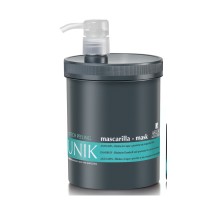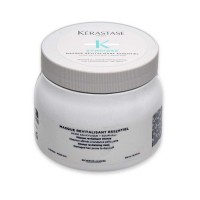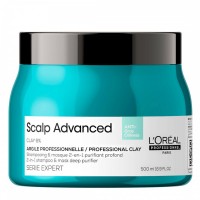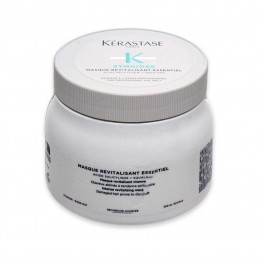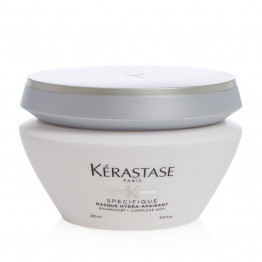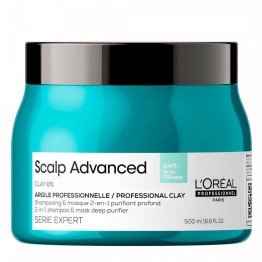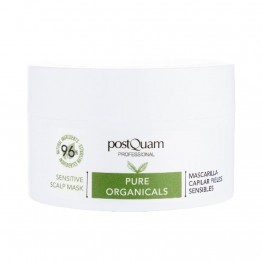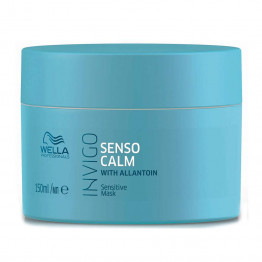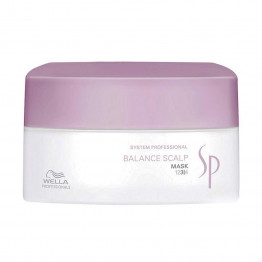Cabelos com caspas / Couro Sensível
Como sei se meu couro cabeludo está irritado?
O couro cabeludo pode apresentar comichão intensa. As causas da irritação são numerosas como, produtos cosméticos inadequados, poluição, stresse e dieta desequilibrada.
Aqui estão algumas dicas e truques práticos, a serem testados para evitar danificar os cabelos!
Cuidar do couro cabeludo não é necessariamente parte de nossas rotinas de beleza. No entanto, a irritação do couro cabeludo é um problema real que não deve ser esquecida.
Como diagnosticar um couro cabeludo sensível e, especialmente, como cuidar dele?
Quando falamos de "pele sensível", geralmente pensamos apenas na pele do rosto e muitas vezes, o couro cabeludo é deixado de fora. No entanto, esta área da cabeça também pode ser irritada por elementos externos.
Para reconhecer um couro cabeludo sensível, é necessário basear-se nos três sinais:
• Vermelhidão
• Comichão
• Caspa
Pode ser que o seu couro cabeludo esteja afetado. Se sentir esses desconfortos, não espere mais, tome uma atitude!
Quais são as causas do couro cabeludo irritado?
Frequentemente, as causas estão ligadas a elementos externos como vento, frio, calor etc. Às vezes, o couro cabeludo também sensibiliza-se por usarmos produtos para o cabelo que não são adequados para as nossas necessidades. Felizmente, hoje existem muitos produtos no mercado que podem cuidar do couro cabeludo irritado. É o caso de champôs leves, sem corantes e hipoalergênicos, que acalmam as sensações de desconforto.
Portanto, priorize as fórmulas de champô e condicionador dedicadas ao couro cabeludo sensibilizado, enxague sempre bem o cabelo e evite fontes de calor, como secadores de cabelo, para não provocar vermelhidão.
A hidratação é a chave anti-comichão. Na maioria dos casos, a irritação do couro cabeludo resulta de um desequilíbrio seborreico. Por outras palavras, é muito seco! Isso pode ser devido ao uso de champôs e outros cuidados com os cabelos, que não são hidratantes o suficiente para nutrir o couro cabeludo. Para remediar isso, a melhor arma continua sendo o óleo vegetal. Existem muitos óleos com propriedades nutritivas e revitalizantes, como o óleo de jojoba ou o óleo de coco, entre os mais usados para fazer máscaras capilares. Além de serem ricos em ácidos gordos, também são muito eficazes no combate à comichão e caspa.
Couro cabeludo irritado: deixe o seu cabelo livre
Se nem sempre é óbvio domar um cabelo rebelde, é recomendável não o apanhar com muita regularidade devendo desistir dos elásticos e outras presilhas ou grampos de cabelo que possam agravar as irritações.
O fato de amarrar os cabelos com muita regularidade pode exercer pressão excessiva sobre as raízes e obstruir a circulação sanguínea que irriga essa parte da cabeça, assim o couro cabeludo sente-se atacado e reage fortemente!
Que óleos para combater um couro cabeludo sensível?
Na gama de cuidados com os cabelos naturais, também pode confiar ao seu couro cabeludo óleos essenciais. Mais concentradas que os óleos vegetais, essas essências também apresentam maior teor de substâncias ativas, razão pela qual, devem ser usados com cautela.
Quando se trata de irritação ou comichão no couro cabeludo, o óleo essencial de “Tea tree” é uma referência para os aromaterapeutas. 5 gotas desta essência misturam-se com 4 colheres de sopa de óleo de coco, e obtém uma base para uma boa máscara capilar antifúngica, suavizante e hidratante. Aplique, deixe por meia hora e lave o cabelo.
Trate um couro cabeludo irritado enquanto segue uma dieta equilibrada
O que comemos afeta diretamente nossa saúde e, logicamente, a dos nossos cabelos. Se o seu couro cabeludo estiver irritado ou seco, pode ser porque a sua dieta está desequilibrada.
Para cabelos saudáveis, coma frutas e legumes frescos, grãos integrais, peixe e carnes brancas. Por outro lado, limite o máximo possível de produtos industrializados que são muito ricos em gorduras de baixa qualidade e açúcares refinados.
Novos 'Cabelos com caspas / Couro Sensível' à venda
Arual Unik Hi-Tech Peeling Mask
Máscara Peeling Hi-Tech Arual Unik Descubra a revolução no cuidado facial com a Máscara Peeling Hi-..
33,95€ 84,90€
-60%
Kérastase K Symbiose Masque Revitalisant Essentiel
Kérastase K Symbiose Masque Revitalisant Essentiel: Descubra a transformação capilar com a máscara K..
54,95€ 55,00€
-0%
Kérastase Spécifique Masque Hydra-Apaisant
Um tratamento profundo que acalma e hidrata o couro cabeludo. Ideal para todos os tipos de cabelo..
49,95€ 58,00€
-14%
Keune Care Derma Sensitive Mask
Keune Care Derma Sensitive Mask Descubra a excelência em cuidados capilares com a Keune Care ..
37,95€
Kevin Murphy Scalp Spa Treatment Calming Foam Masque
Kevin Murphy Scalp Spa Treatment Calming Foam Masque Descubra o segredo para um couro cab..
38,95€ 40,00€
-3%
Klorane Máscara Capilar Anti-Caspa Pó Galanga Bio
Klorane Máscara Capilar Anti-Caspa Pó Galanga Bio Descubra a Klorane Máscara Capilar Anti-Cas..
20,95€ 25,78€
-19%
L'Oréal Professionnel Scalp Advanced Purificadora Profunda Shampoo & Mascara
L'Oréal Professionnel Scalp Advanced Purificadora Profunda Shampoo & Máscara Experimente a..
20,95€ 53,00€
-60%
Phyto Scalp Solution Purifying Cleansing Scrub
Phyto Scalp Solution Purifying Cleansing Scrub Descubra o poder purificador do Phyto Scalp So..
21,95€ 56,05€
-61%
Postquam Pure Organicals Sensitive Scalp Mask
Postquam Pure Organicals Sensitive Scalp Mask - Máscara Capilar para Couro Cabeludo Sensível De..
22,95€ 49,90€
-54%
Salerm Hairlab Dermocalm Mask
Salerm Hairlab Dermocalm Mask Descubra a máscara capilar Salerm Hairlab Dermocalm, a solução pe..
13,95€ 14,00€
-0%
Wella Invigo Senso Calm Sensitive Mask
Wella Professionals INVIGO Balance Senso Calm Sensitive Mask, com Alantoína, é uma máscara sem fragr..
21,95€ 26,00€
-16%
Wella SP Balance Scalp Mask
alivia as irritações do couro cabeludo e trata os fios, hidratando-os profundamente.Além disso, ela ..
13,95€ 26,00€
-46%






